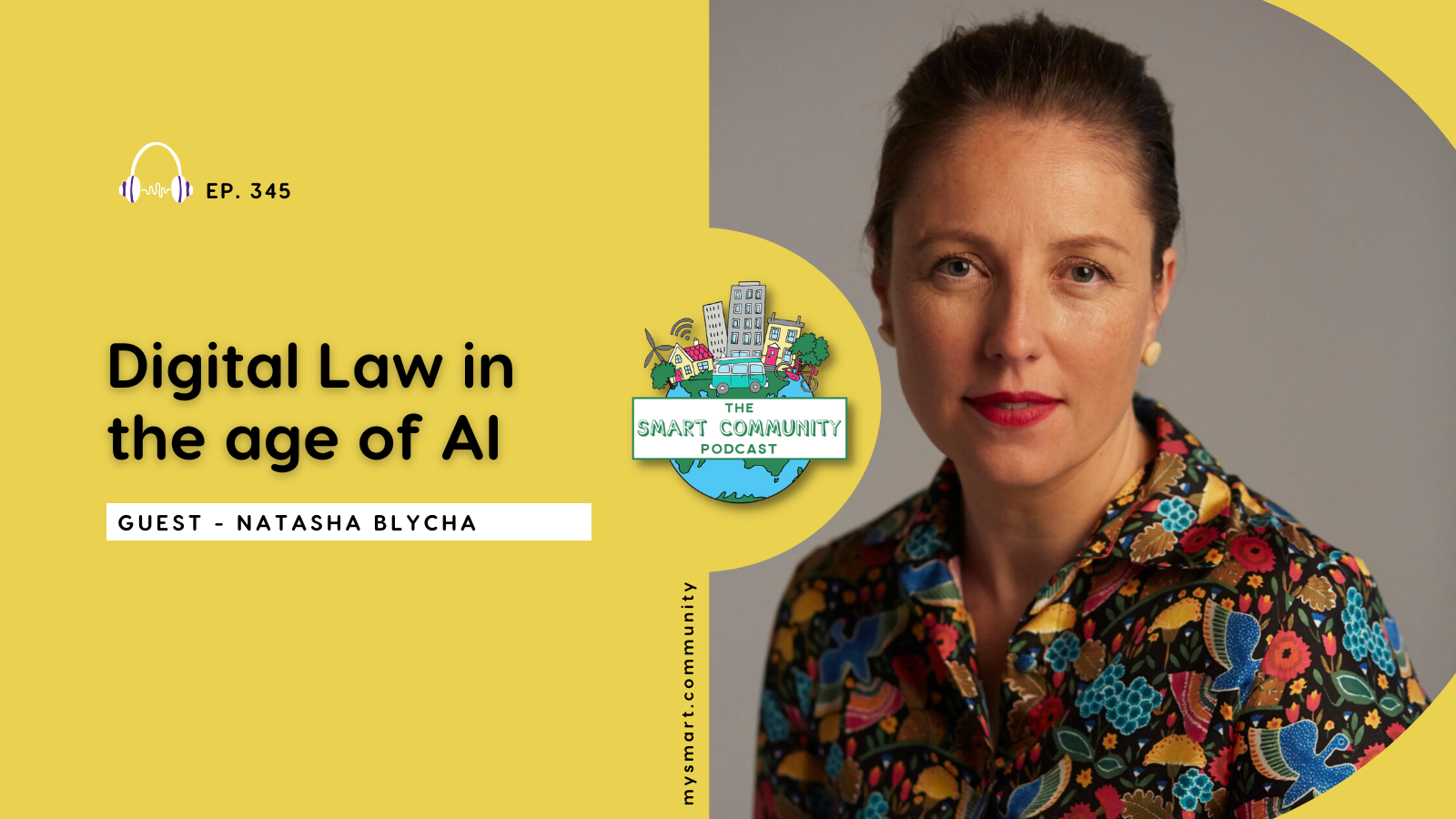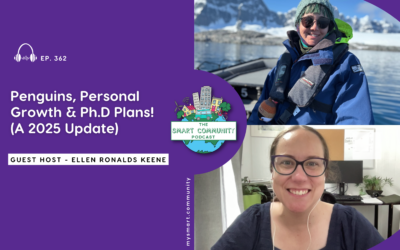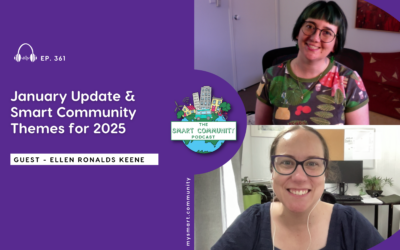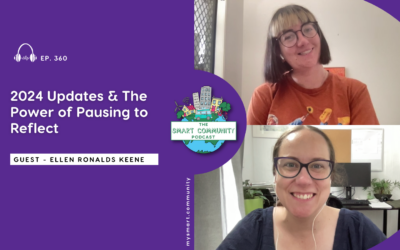Hi #SmartCommunity friends, welcome back to another episode of The Smart Community Podcast. In this episode, I have a brilliant conversation with Natasha Blycha, the founder of the boutique digital law firm Stirling & Rose. Natasha advises on web 3.0, crypto assets, data, privacy, digital asset infrastructure and smart legal contracts and helped author the 2022 Oxford Smart Legal Contract text.
In this episode, Natasha tells us about her background in emerging tech law and her passion for the digital free movement, and we discuss the need to balance frictionless tech solutions while still keeping humans involved and able to intervene in Smart Communities.
Natasha and I explore the rise of artificial intelligence and the possibilities of Smart Legal Contracts, as well as discussing the potential ‘terms and conditions’ of Smart Cities. Natasha tells us why she has a digital free room in her house and the human need to disconnect, and we talk about the benefits and risks of digital free national parks and other public spaces.
We finish our chat discussing the emerging idea of our ‘implantable’ future, and the need for regulated digital quiet times within it, as well as where to next for making data and AI more equitable.
You might have noticed in the last few episodes, we have left the ‘where to next for Smart Cities and Communities’ question in the main interview. We are making a little shift in our programming going forwards and won’t be doing the ‘Where to Next’ mash up episodes anymore.
As always we hope you enjoyed listening to this episode as much as we enjoyed making it.
Listen here:
What we cover in this episode:
- Natasha’s background in emerging tech law and her passion for the ‘digital free’ movement
- What a Smart Community is to Natasha
- The need to balance frictionless tech solutions while still keeping humans involved and able to intervene
- The rise of artificial intelligence and our human response to our impending redundancy
- Why Natasha has a digital free room in her house
- Natasha’s work in law at the edge of areas that have yet to be legislated or regulated
- The possibilities of Smart Legal Contracts and the terms and conditions of Smart Cities
- The future potential for bespoke, AI-powered law and medicine
- The opportunities and challenges of big data fuelling decision making and design
- What the digital free movement is and the human need to disconnect
- The benefits and risks of digital free national parks and other public spaces
- The emerging idea of regulated digital quiet times within our ‘implantable’ future
- Where to next for making data and AI more equitable
Quotes:
“Particularly for the iPhone generation, there is a lot of evidence to suggest that we have compromised our mental health, our physical health, with greater levels of connectivity. And being Smart doesn’t just involve process improvement and ubiquity of digital connection. It actually involves disconnection.”
“I have in my own house, a digital free room. It’s a demarcated area in my lounge room, and everyone in the family knows that if you step over that tape, you do not bring even a smartphone, you don’t bring a watch or anything that’s digital. And we needed it because we are so dependent on our technology, that it felt like there needed to be a place which enforced discipline to not be on tech.”
“What does the law need to do at the edge? What does the law need to do as it pushes out its tendrils to new areas that haven’t actually been legislated or regulated for? So in this case, we have been heavily involved in work on Smart legal contracts.”
“Do you even have an understanding of the terms and conditions of the places and locations that you enter into? Are they fair? Would you, if you read them, agree to them? Most people don’t actually feel like they have any ability to negotiate the contracts that they enter into. So in a perfect world, what Smart legal contracts will do is they will give people the ability to curate the contracts that they enter into.”
“Digital disconnection may not be a human right, per se, but at a minimum, it’s an important human need. So that’s the foundation. Smart cities, smart locations, are actually moving to wearable devices. And the next step will be implantable devices…that is inevitable, we will move to implantable devices. And that means we will never be disconnected.”
“Are we happy with the future state of the world, whether that’s in five years, or 10 years, where there is no place on Earth where you will be able to disconnect from access to surveillance by or some kind of augmented reality? Is that an acceptable future to us? That’s not an acceptable future to me. And what can we do to stop it? We want Connected Smart Cities, so let’s do that for most of the places. But is it not wise, is it not prudent and is it not a good mitigation strategy to…establish these space parks, which are basically orbitrary zones, which stop satellites deploying internet coverage over certain spaces and applying that digital free zone into cities.”
“Things change really quickly, especially with convergence of tech. So a lot of things I’m talking about now, we’ve been talking about for a few years, but people thought it was science fiction. And actually, the science fiction is now.”
“Data actually is the mother’s milk of AI. So you can’t get to AI without data…the people who hold the mass amounts of data are king, they have the key to the castle. So when we talk about data taxes, we talk about a Data Trust. It’s almost a future state library that nation states should think about having where if you are an organisation that collects enormous amounts of data, you should be compelled to at least share some portion of that de identified data with a public repository that is accessible to all.”
Connect:
Connect with Natasha on LinkedIn or the Stirling and Rose website
Connect with me via email: hello@mysmart.community
Connect with My Smart Community via LinkedIn or Twitter and watch on YouTube
The Smart Community Podcast is produced by Perk Digital.






0 Comments